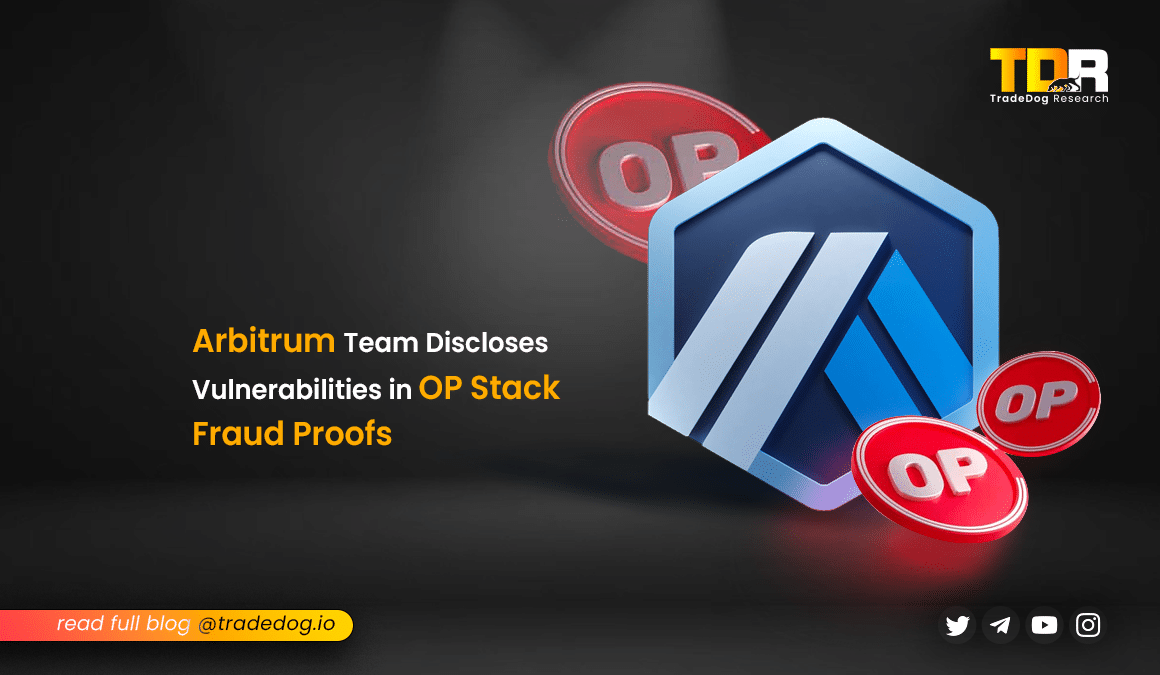Quick Links
OP Labs, the organization responsible for the Ethereum Layer 2 solution Optimism, has addressed two vulnerabilities within the fraud-proof system deployed on the testnet. The resolution was revealed by Offchain Labs, the creators of Arbitrum, another prominent layer 2 network often regarded as a rival to Optimism. This incident serves as a teachable moment, highlighting the complexities of blockchain security and the importance of continuous vigilance. Now, let’s take a closer look at these vulnerabilities and what we can learn from this to build even safer blockchains in the future.
Understanding the Core Vulnerabilies
Fraud proofs play a critical role in maintaining the security and accuracy of Optimistic Rollups. They allow verifiers to challenge invalid transactions. Optimistic Rollups improve Ethereum’s performance by processing transactions off-chain, reducing mainnet congestion, and enhancing scalability.
As mentioned above, Fraud proofs is a way for anyone to dispute a transaction on a Layer 2 network. If the challenge is successful, the Ethereum blockchain can be used to reverse the fraudulent transaction. This ensures the overall security of the Layer 2 system. The vulnerabilities resided in how OP Stack handled timers within its dispute resolution process. These timers determine how long each party in a dispute has to respond to a challenge. Malicious actors could have exploited these flaws to manipulate the system in two ways:
- Forcing Acceptance of Fraudulent Transactions: By manipulating the timers, an attacker could have tricked the system into accepting a fake transaction as valid. This essentially bypasses the fraud detection mechanism, potentially leading to unauthorized activities going unnoticed.
- Blocking Legitimate Transactions: Conversely, an attacker could have manipulated the timers to prevent a valid transaction from being accepted. This could have disrupted legitimate users and hindered the functionality of the network.
The Importance of Timers in Fraud Proof
Fraud proofs are a cornerstone of Layer 2 security. They allow anyone to challenge the validity of a transaction, and if successful, the Ethereum blockchain can be used to revert the fraudulent transaction. Timers play a crucial role in this process by:
- Preventing Stalls: They ensure that disputes are resolved promptly. Without timers, a malicious actor could simply delay their response indefinitely, hindering the dispute-resolution process.
- Balancing Fairness: Timers need to be carefully calibrated to strike a balance between giving honest players enough time to respond in case of censorship and preventing malicious actors from abusing the system through excessive delays.
Typically, fraud proofs implement timers using a countdown mechanism or by requiring a response within a specific number of blocks added to the blockchain. This ensures disputes are resolved promptly while still allowing honest participants enough time to respond.
Lessons Learned from this Incident
- Responsible Disclosure is Paramount: By working together, even competing teams can identify and fix vulnerabilities before they cause harm. This incident demonstrates the importance of collaboration and information sharing within the blockchain ecosystem.
- Fraud Proof Design is Complex: As we have seen, designing secure fraud proofs involves careful consideration of various factors, including timer mechanisms and how to prevent them from being exploited.
- Continuous Improvement is Essential: Security is an ongoing process. The iterative nature of protocol development allows for the identification and mitigation of vulnerabilities over time. Security audits and ongoing testing are crucial for maintaining a robust system.
The impact of these vulnerabilities on Optimism was fortunately limited. The issues were identified during testing on the testnet, a safe environment for developers to iron out problems before they impact real users. Additionally, a prior audit confirmed that no critical vulnerabilities bypassed the existing safety mechanisms.
Looking Forward: A Focus on Robust Security
The responsible disclosure of these vulnerabilities by Arbitrum serves as a positive example within the blockchain industry. It emphasizes the importance of prioritizing security and fostering collaboration for the greater good of the ecosystem. As blockchain technology continues to evolve, developers will need to continuously refine fraud proofs and other security mechanisms to ensure a safe and reliable future for decentralized applications.








